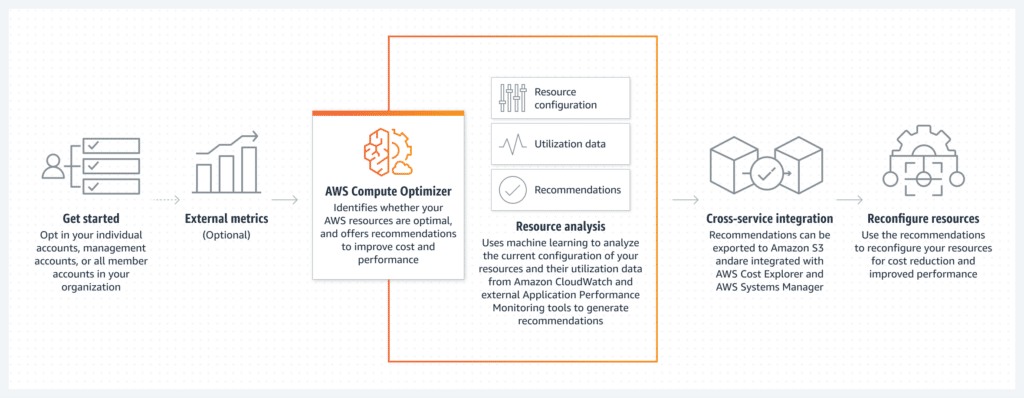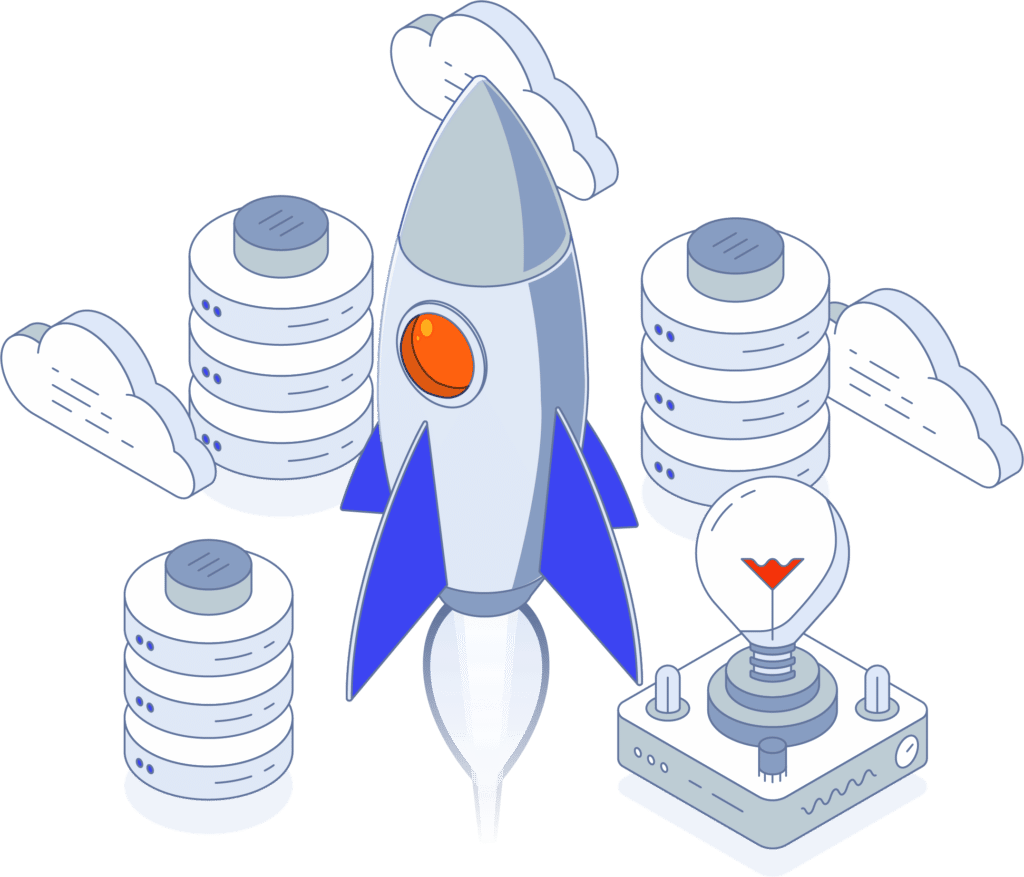Looking to optimize your AWS infrastructure for better performance and cost savings? Look no further than AWS Compute Optimizer. In this guide, we’ll explore how this powerful tool can supercharge your AWS infrastructure by analyzing its usage patterns and recommending optimal configurations.
With AWS Compute Optimizer, you can gain valuable insights into the utilization and performance of your Amazon EC2 instances and Auto Scaling groups. By leveraging advanced machine learning algorithms, Compute Optimizer identifies over-provisioned and under-utilized resources, allowing you to right-size your infrastructure and eliminate unnecessary expenses.
But that’s not all. Compute Optimizer also analyzes your EC2 instance usage patterns to recommend the most appropriate EC2 instance types, ensuring you’re getting the best performance for your workloads. By leveraging these recommendations, you can improve application performance, reduce costs, and achieve better ROI on your AWS investments.
Table of Contents
Ready to take your AWS infrastructure to the next level? Let’s dive into AWS Compute Optimizer and uncover the secrets to optimizing your cloud resources for maximum efficiency and cost-effectiveness.
What is AWS Compute Optimizer?
Compute Optimizer is a service provided by Amazon Web Services (AWS) that analyzes the resource utilization of your EC2 instances and provides recommendations to help you optimize their performance and cost efficiency. It uses machine learning algorithms to analyze historical resource utilization data and identify potential optimizations for CPU, memory, and storage. By implementing these recommendations, you can improve the performance of your EC2 instances while minimizing costs.
The Benefits of AWS Compute Optimizer
- Cost-Efficiency: Compute Optimizer is a free tool that helps you identify underutilized resources, which in turn reduces unnecessary costs. It provides detailed reports on the performance of your resources, helping you to make informed decisions on resource allocation.
- Improved Performance: By recommending optimal EC2 instances and Auto Scaling groups, it ensures that your applications run at peak performance. It analyzes historical data to provide recommendations that can enhance the performance of your infrastructure.
- Simplified Management: Managing a cloud infrastructure can be complex. Compute Optimizer simplifies this by providing actionable insights and recommendations, making the management of your AWS infrastructure a breeze.
How AWS Compute Optimizer Works
Machine Learning at its Core
AWS Compute Optimizer utilizes machine learning to analyze the historical utilization data of your EC2 instances and Auto Scaling groups. It then provides recommendations based on patterns and trends identified from this data.
Detailed Reporting
Compute Optimizer offers detailed reports that provide insights into your infrastructure’s performance, helping you to identify areas where improvements can be made.

Key Features and Functionalities of AWS Compute Optimizer
Resource Optimization Recommendations
Compute Optimizer provides recommendations for optimizing resources, helping you to find the most cost-effective and performance-enhancing configurations for your infrastructure.
EC2 Instance Type Recommendations
It recommends the most suitable EC2 instance types for your workloads, helping to improve performance and reduce costs.
Auto Scaling Group Recommendations
Compute Optimizer also provides recommendations for your Auto Scaling groups, helping to ensure that they are configured optimally to meet your performance and cost objectives.
Steps to Set Up AWS Compute Optimizer for Your Infrastructure
1. Launch the AWS Compute Optimizer Console.

2. Click “Get Started”.

3. Click “Opt-in” (this requires Compute Optimizer permissions).

4. You will see a dashboard.

5. Look at resources and findings.

6. Select a resource type to see further details.


We Love Startups (and They Love Us Back!)
Our team has a proven track record of helping 700+ startups, just like yours. As an official Scout for the AWS Activate program, we have the perfect mix of tools to maximize your project’s potential on AWS.
Our team takes pride in building strong relationships with our clients, allowing us to continue supporting their growth for years to come.
Metrics Analyzed by AWS Compute Optimizer
- CPU utilization: Determines the percentage of allocated EC2 compute units.
- Memory utilization: Determines the amount of memory that has been used over a period of time.
- Network in: Identifies the number of bytes that have been received on all network interfaces.
- Network out: Identifies the number of bytes that have been sent out on all network interfaces.
- Local disk I/O: Represents the number of I/O operations for the local disk.
Summary
As we reach the end of this guide, it becomes clear that Compute Optimizer is a powerful tool for optimizing your AWS infrastructure. By understanding its features and functionalities and implementing its recommendations, you can supercharge your AWS infrastructure, achieving greater efficiency and cost savings.







